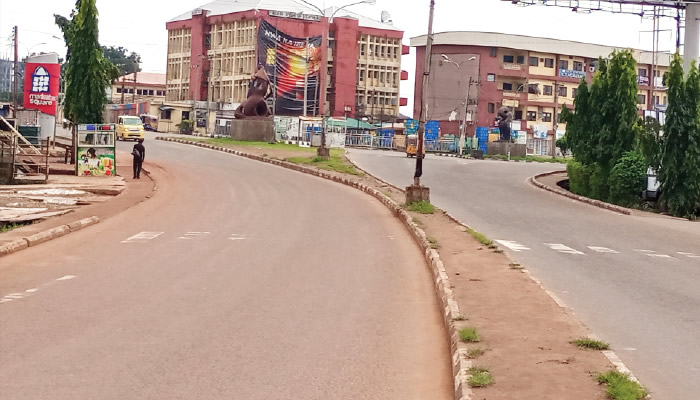The proscribed leader of the Indigenous People of Biafra (IPOB), Mazi Nnamdi Kanu, will today appear before the Court of Appeal in Abuja. The court would be hearing Nnamdi Kanu’s appeal against the seven-count charge filed against him by the federal government. Also, today September 13th 2022, the government of Imo State (one of the five southeastern states) would be receiving President Muhammadu Buhari.
As a common practice, IPOB declared a sit-at-home order in the five southeastern states of Nigeria in solidarity to their leader appearing in court and in utter disrespect to the visit of Nigeria’s president. The lockdown would halt educational, business, banking and other activities in the five southeastern states for a day.
The residents in the eastern region are in fear of the threats posed by the enforcers of the sit-at-home order and as such there is hardly any defiance to the order.
Impact of Sit-at-home
Buying and selling
The south East is home to some of the biggest markets in the country, from onitsha market to nnewi market. Residents in the East and its environs patronize the aforementioned markets and other trading points to earn their daily income. The sit at home order once a week and every other day therefore hinders both the traders and the government from creating wealth, negatively affecting the economy of the southeast and Nigeria as a whole.
Hoodlums
With homes and marketplaces vacated, hoodlums seize the opportunity to loot and vandalize closed shops. They also molest and wreck all kinds of violence.
School children
When a sit-at-home order is in effect, school children are deprived of the opportunity to learn, as they are also forced to stay home.
Transporters
Like business people, transporters who ply the southeast route are hindered from carrying out their activities.

